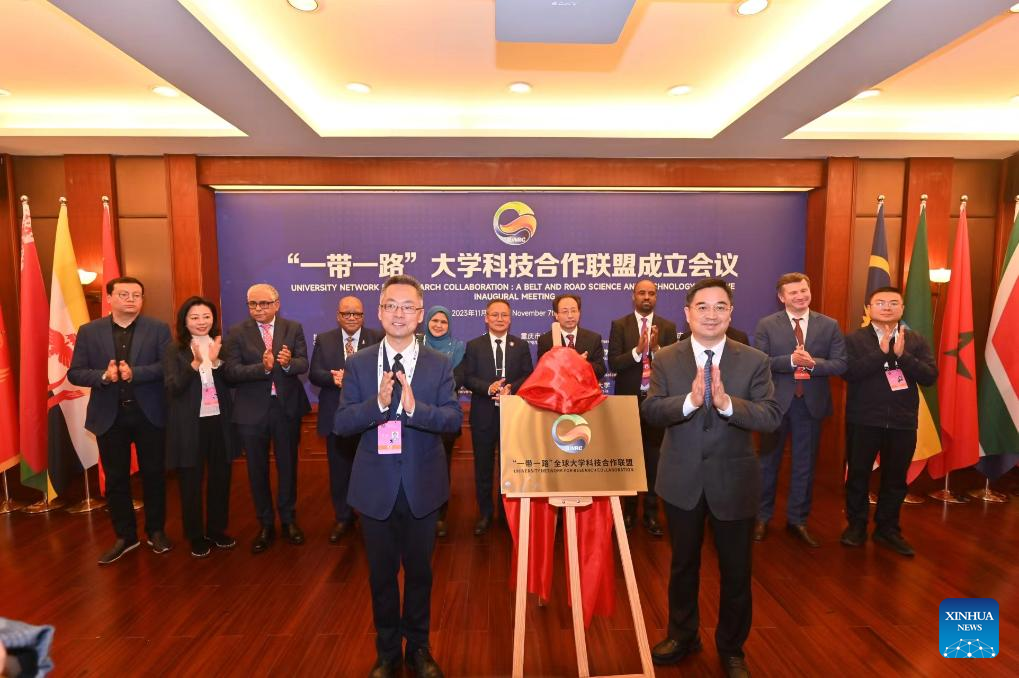
The University Network for Research Collaboration: A Belt and Road Science and Technology Initiative (iUNRC) is initiated during the first Belt and Road Conference on Science and Technology Exchange in southwest China's Chongqing Municipality, Nov. 7, 2023.(Xinhua)
CHONGQING, Nov. 10 (Xinhua) -- A new international academic network has been launched in Chongqing Municipality, southwest China, with the purpose of fostering closer research synergy between China and Belt and Road Initiative (BRI) partner countries.
The University Network for Research Collaboration: A Belt and Road Science and Technology Initiative (iUNRC) was initiated during the first Belt and Road Conference on Science and Technology Exchange, held from Monday to Tuesday in Chongqing. Twelve universities from BRI partner countries became the first members of the network.
Besides Chongqing University, the founding members include three other universities from China and eight overseas universities, such as Ambo University in Ethiopia, Belarusian State University, and Mongolian University of Science and Technology.
The iUNRC aims to facilitate exchanges of information, knowledge and resources among universities worldwide, and promote interconnectivity in research collaboration, to inject impetus and vitality into the high-quality Belt and Road cooperation.
China's universities and the BRI partner countries have already been engaged in close cooperation for a long time, including projects on research and talent training.
At the Beijing Institute of Technology, one of the iUNRC members, students from BRI partner countries account for about 70 percent of its over 2,800 overseas students. It has also set up a joint laboratory on intelligent unmanned systems with the United Arab Emirates, which has secured fruitful results.
Many universities in BRI partner countries have highlighted the importance of cooperation where research is concerned.
Namnan Tumurpurev, president of Mongolian University of Science and Technology, said that the challenges of achieving sustainable development goals far exceed the resources and capabilities of individual universities. Joint efforts should be made to carry out cooperation projects to overcome the disparities between different countries, he said.
Bayissa Leta Dano, president of Ambo University, said that the university excels in agricultural engineering, and it is seeking to bolster agricultural development through relevant sci-tech progress for the well-being of people worldwide.
He said that, through the process of collaboration on different research topics, universities are able to develop many new methods and tools, improve the quality of research, and thus foster a better, healthier and more sustainable world.
Wang Shuxin, an academician at the Chinese Academy of Engineering and president of Chongqing University, said the university will speed up the construction of a regular science and technology exchange mechanism and pool more scientific and technological resources from global universities to meet the needs of innovation and cooperation under the BRI.
China has supported more than 10,000 young scientists from BRI partner countries to come to China for short-term research and exchanges, and has trained 16,000 people from BRI partner countries in technology and management skills, according to the Chinese Ministry of Science and Technology. ■



